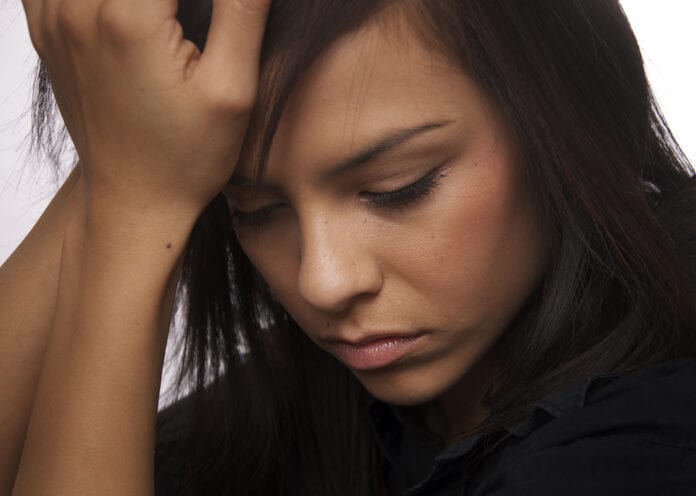Just under a third of people in Wales report decrease in self-esteem compared with pre-pandemic levels
Relate Cymru encourages people to work on loving themselves this Relationships Week (5-11 July)
Just under a third of respondents in Wales (31%) say their self-esteem has decreased compared with pre-pandemic levels[i]. In contrast, 17% of respondents said their self-esteem has increased. This compares to a quarter (25%) of respondents across the UK as a whole reporting a decrease in their self-esteem with 21% saying their self-esteem has increased.
This is according to new report ‘The Way We Are Now 2021‘, released by leading relationships charity Relate and relationship experts eharmony during Relationships Week (5-11 July). The report combines insights from counsellor focus groups and consumer polling, plus website and service data. It considers how single people and couples have reacted to lockdown easing and identifies key attitude and behaviour changes, as well as offering tips from counsellors for building healthy relationships with yourself and others.
The research found that two thirds (64%) respondents agreeing that self-esteem is linked to success in a romantic relationship – this dropped to 59% for those living in Wales. That’s why Relate Cymru is using Relationships Week to encourage people to work on arguably the most important relationship of all: the one with themselves.
Relate’s National Manager, Rheolwr Genedlaethol – Cymru, Val Tinkler said the pandemic appears to have contributed to a split in self-esteem levels: “A positive and balanced view of yourself is critical to overall wellbeing and building strong relationships of all kinds. The finding that just under a third of people in Wales report a decrease in self-esteem highlights that for some it has taken a big hit. As we focus on ‘getting back out there’ don’t forget to take some time to also focus on yourself. Learning to love yourself can mean different things to different people – it might be joining a face-to-face exercise class now that’s possible again, saying no to a social engagement, or getting some support such as counselling.”
Across the whole of the UK, respondents whose self-esteem increased now, compared to pre the Covid-19 pandemic said the top reasons for their self-esteem increasing were paying more attention to their physical health (30%), realising how strong they are for getting through a pandemic (24%) and taking up a new hobby (24%)[ii]. For those who said their self-esteem decreased during the pandemic this was driven by their inability to socialise with friends and family (48%), money worries (42%) and have not prioritised on their physical health (40%). Comparison with others on social media (23%) was another key factor[iii]. Low self-esteem is currently more prevalent among women than men with 32% of women saying their self-esteem decreased, compared to pre Covid-19 pandemic, whereas only 18% of men said the same.
These findings are supported by Relate’s own website data which shows their page on low self-esteem has recently seen a 125% increase in page views, suggesting people are keen to work on their self-esteem now we are emerging from lockdown[iv].
Relate’s own data also shows that the number of 18-34 year olds attending counselling on their own at Relate has increased by 7% since before the pandemic.[v] They want to encourage even more millennials and Gen-Zers to get in touch by accessing their online self-help content and attending services such as individual counselling to work on issues relating to low self-esteem, friendship and finding love.
Self-help singles
Focussing on single people, the report shows over two in five (42%) respondents have, or are more likely to enter into short but intense romantic relationships since restrictions have relaxed. 3 in 10 respondents (30%) have made more effort than pre the Covid-19 pandemic to learn from previous mistakes and/or recognise unhealthy romantic patterns. Over a fifth of single people surveyed (23%) noted that they use self-help resources including books, online quizzes or advice from wellness influencers. Interestingly, single 18–34-year-olds surveyed are more likely than any other age group to use self-help resources more than they did pre Covid-19 (32%).[vi]
Over a quarter (28%) of single people who are more likely to enter into short but intense romantic relationships, since restrictions have relaxed, think this is because they have a better sense of what they want from a relationship than before the pandemic, and a similar number (24%) don’t want to waste any more time. However, sex presents an issue for some. One in four (25%) single people surveyed feel ‘out of practice’ in the bedroom, while over 1 in 12 (13%) are not ready to be intimate again. [vii]
Rachael Lloyd, relationship expert at eharmony said: “Lockdown was hard for a lot of people, but it also gave singles the time to work out who they are and what they’re looking for in a partner. While it’s only natural that some people feel nervous about having sex again, lockdown has also created a boom in more meaningful dating, with people keen to find real substance. At eharmony, we’ve seen this kind of thing happening before – traumatic environmental events invariably lead to spikes in dating and people wanting to connect deeply with each other.”
The state of Britain’s couple relationships
Looking at those in relationships, the pandemic has sped up how quickly couples are reaching common relationship milestones including saying ‘I love you’ for the first time (68%), getting a pet (59%), buying a house together (58%), getting engaged (63%) and even trying for a baby (61%).
And for couples who report feeling happier post the Covid-19 pandemic, reasons include more quality time together (46%), the opportunity for more open and honest conversations (37%) and a spike for some in how often they have sex (20%).
Some couples who have been in a relationship for a year or longer with their partner report that the quality of their relationship has been worse compared to how it was pre Covid-19 (13%)[1], however, are left feeling that the quality of their relationship has worsened through the pandemic. The report found that one in ten (10%) respondents who are in a relationship that having more time apart due to lockdown lifting will help their relationship.
Val adds: “A key issue we see in counselling is partners not prioritising quality time together. Lockdown meant this was no longer a bone of contention but as restrictions ease and calendars get busier, making time for one another requires a more concerted effort.”
‘The Way We Are Now’ report has been released to launch Relate’s annual Relationships Week (5-11 July). People can access self-help content on learning to love yourself throughout the Week and beyond, and information on services to help boost self-esteem is available at relate.org.uk/relationships-week.

| [donate]
| Help keep news FREE for our readersSupporting your local community newspaper/online news outlet is crucial now more than ever. If you believe in independent journalism,then consider making a valuable contribution by making a one-time or monthly donation. We operate in rural areas where providing unbiased news can be challenging. |



















